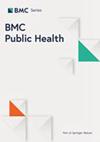镜子,我屏幕上的镜子关注社交媒体上的自我展示与青少年的完美主义和饮食失调有关。LifeOnSoMe "研究的结果
IF 3.5
2区 医学
Q1 PUBLIC, ENVIRONMENTAL & OCCUPATIONAL HEALTH
引用次数: 0
摘要
在过去的几十年里,社交媒体的使用、完美主义和饮食失调的现象都有所增加。一些研究表明,自我展示行为和在社交媒体上接触他人的自我展示与饮食失调之间存在关系。研究还表明,关注自我展示与高度视觉化的社交媒体之间的关系比非视觉化的社交媒体更密切,从而促进了向上的社会比较。然而,以往的研究还没有调查过青少年在社交媒体上注重自我展示和向上社交比较与完美主义和饮食失调之间的联系,而这正是本研究的目的所在。本研究基于 2020 年和 2021 年进行的 "LifeOnSoMe "研究(N = 3424)的横断面调查。受访者为挪威卑尔根的高中生(平均年龄 17.3 岁,女性占 56%)。我们进行了多元回归分析,其中SPAUSCIS是一个衡量自我展示和向上社会比较的指标,它是一个自变量。完美主义和饮食失调是因变量。自我报告的年龄、性别和主观社会经济地位以及社交媒体的使用频率和持续时间被用作协变量。通过回归模型来比较 SPAUSCIS 中位数分割的比例。多元回归分析表明,在社交媒体上更多地关注自我展示和向上的社会比较与完美主义(标准化系数为 0.28)和饮食失调呈正相关。在饮食失调方面,女孩的相关性要强于男孩(女孩的标准化系数为 0.39,男孩为 0.29)。完美主义没有性别调节作用。研究结果表明,在社交媒体上注重自我展示和向上的社会比较与完美主义和饮食失调有关。我们建议提倡健康使用社交媒体。这可以通过提高青少年对社交媒体上的自我展示和向上社会比较进行反思和批判性思考的能力来实现。本文章由计算机程序翻译,如有差异,请以英文原文为准。
Mirror, mirror on my screen: Focus on self-presentation on social media is associated with perfectionism and disordered eating among adolescents. Results from the “LifeOnSoMe”-study
Social media use, perfectionism, and disordered eating have all increased over the last decades. Some studies indicate that there is a relationship between self-presentation behaviors and being exposed to others’ self-presentation on social media, and disordered eating. Studies also show that the relationship between focus on self-presentation and highly visual social media is stronger than for non-visual social media, hence facilitating upward social comparison. Nevertheless, no previous studies have investigated the link between adolescents’ focus on self-presentation and upward social comparison on social media, and perfectionism and disordered eating, which is the aim of the present study. The present study is based on a cross-sectional survey from the “LifeOnSoMe”-study (N = 3424), conducted in 2020 and 2021. Respondents were high school students (mean age 17.3 years, 56% females) in Bergen, Norway. Multiple regression analysis was performed, where SPAUSCIS, a measure of self-presentation and upward social comparison, was the independent variable. Perfectionism and disordered eating were dependent variables. Self-reported age, gender, and subjective socioeconomic status were used as covariates, as well as frequency and duration of social media use. Regression models were performed to compare proportions across the median split of SPAUSCIS. The multiple regression analysis showed that increased focus on self-presentation and upward social comparison on social media were positively associated with both perfectionism (standardized coefficient 0.28) and disordered eating. A stronger association for girls than boys was found for disordered eating (standardized coefficient 0.39 for girls and 0.29 for boys). There was no gender moderation for perfectionism. Findings suggest that focus on self-presentation and upward social comparison on social media is associated with perfectionism and disordered eating. We recommend promoting a healthy use of social media. This could be established by increasing adolescents’ ability to reflect on and think critically about self-presentation and upward social comparison on social media.
求助全文
通过发布文献求助,成功后即可免费获取论文全文。
去求助
来源期刊

BMC Public Health
医学-公共卫生、环境卫生与职业卫生
CiteScore
6.50
自引率
4.40%
发文量
2108
审稿时长
1 months
期刊介绍:
BMC Public Health is an open access, peer-reviewed journal that considers articles on the epidemiology of disease and the understanding of all aspects of public health. The journal has a special focus on the social determinants of health, the environmental, behavioral, and occupational correlates of health and disease, and the impact of health policies, practices and interventions on the community.
 求助内容:
求助内容: 应助结果提醒方式:
应助结果提醒方式:


